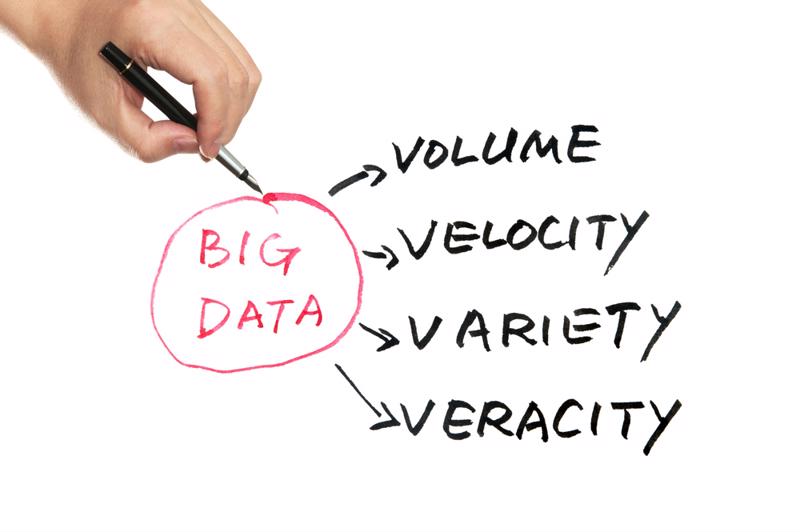Why big data is important
Big data is a term that is said just about everywhere. But what exactly is big data? On the surface, the concept is not difficult to grasp - essentially, big data encompasses large data sets from every digital process and online interaction. However, because nearly every aspect of the global economy is online based, these data sets are large and quite complex. Businesses that accurately examine large data sets will lead to better decision-making. These decisions will in turn lead businesses to reduce costs, risks and improve overall operational efficiency.
Doug Laney developed the three V's of big data back in 2001, and his definition has since become accepted mainstream. Big data and its challenges are three-dimensional, according to Laney. They are represented as: volume, velocity and variety. Some companies also add a fourth definition - veracity, or the quality of big data being collected. Present day challenges center around new processes that lead to even greater decision-making.
How does web to print software come into play? Like other industries, this software and its users contribute to big data sets. Companies can come to understand when their clients are using the software, how they're using it and why. From there, the company can make adjustments to their software if need be.

The Pew Research Center recently released a study of smartphone usage in the U.S., and 65 percent of citizens now own a smartphone. There is still much debate over whether mobile devices will replace computers - the same poll shows that users typically use smartphones to stay on top of news, message friends and to stream media. The devices are not being used to replace workstations. However, their usage contributes to a company's big data sets, and firms would find it beneficial to ensure their software is utilized for mobile devices. Heavy workloads will never be done on smartphones, but some work will, such as changing a workflow at the last minute. Some companies already offer mobile web to print solutions to fit their clients' needs. Those that do are in a better position than companies that do not offer mobile web to print solutions.
There is an underlying fear of big data simply because of the wealth of information it provides. UPS is expected to store data on everything from package tracking to delivery trucks' progress, speed and efficiency on the roads. This amounts to nearly 39 petabytes of data, or 1,000,000 gigabytes of data.
Therefore, it is imperative to have the necessary setup in place to analyze big data. Having the proper IT infrastructure in place will ensure the data is accessible and stored in a secure manner, most likely locally. Cloud storage, though rapidly declining in price, is not the first option for sensitive data storage. Storage company Seagate Technology estimates only 13 percent of enterprise data is stored in the cloud.
Big data is a valuable tool. When used correctly, clients and companies can benefit from the wealth of knowledge. Combined, analytical software, algorithms and big data specialists will further understand and spot the important trends and information.



